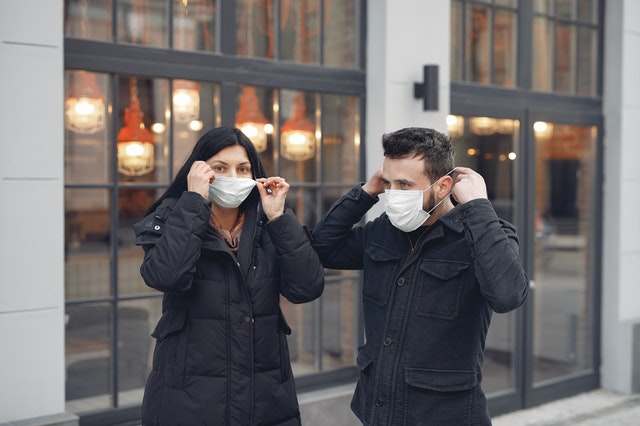
WNC Adult First Flu Death in 2021-2022 Flu Season in North Carolina
Western North Carolina News -- December 14, 2021 The North Carolina Department of Health and Human Services (NCDHS)
today announced a death due to complications of influenza in an adult in the western part of the state.
The person tested positive for influenza A (H3N2), not the new 2009 H1N1 virus, or COVID-19. This is the first reported flu-related death of the 2021-22 flu season.
“This is a sad reminder that flu can be a serious illness and can lead to complications and even death in some cases,” said State Epidemiologist Zack Moore, M.D., MPH. “With flu cases increasing and the ongoing COVID-19 pandemic, it is more important than ever for people to get a flu vaccine this year, as well as a COVID-19 vaccination or booster if they have not already done so.”
North Carolina is seeing more influenza activity than at any time since the COVID-19 pandemic began in March 2020.
“Unfortunately, COVID-19 cases are on the rise in the midst of the flu season, creating even more demand of our state’s hospital beds,” said NCDHHS Chief Deputy Secretary for Health Kody H. Kinsley. “It is important to get a COVID-19 vaccine and flu shot as soon as possible, and get your booster when you become eligible, to protect yourself and your family and to preserve hospital bed capacity for emergencies.”
CDC recommends flu vaccination every year for everyone 6 months and older. Vaccination is the best way to prevent infection with the flu. Vaccination can also make illness milder for those who do get the flu, making it especially important for those at higher risk of more serious outcomes, such as people over 65 years old, children younger than 5, pregnant women and those with certain medical conditions such as asthma, diabetes, heart disease and obesity.
wnctimes Marjorie Farrington Tuesday December 14, 2021
Below is North Carolina Department of Health and Huma Services Information
Flu and COVID-19 vaccines can be administered at the same visit, and the CDC recommends COVID-19 vaccination for everyone 5 years old and older and COVID-19 booster for everyone 16 years of age and older when eligible.
Flu vaccinations are available at hospitals, pharmacies, private medical offices, some federally qualified health care centers and local health departments. To find a flu vaccine near you, visit vaccinefinder.org/find-vaccines. To find a COVID-19 vaccine location, or for more information about COVID-19 vaccines in North Carolina, visit MySpot.nc.gov or call the state’s COVID-19 Vaccine Help Center for free at 888-675-4567.
Anyone who thinks they have the flu should contact their doctor right away to see if they need treatment with a prescription antiviral drug. Early treatment with an antiviral drug can help prevent flu infections from becoming more serious. Treatment with a prescription antiviral drug is especially important for hospitalized patients, people with severe flu illness and those who are at high risk of serious flu complications based on their age or health.
In North Carolina, flu infections are most common from late fall to early spring with activity usually peaking in January or February. The following precautions should be taken to protect against the spread of flu, COVID-19 and other viruses:
Continue to practice the 3Ws — wearing a face covering over your nose and mouth, waiting 6 feet apart, and washing your hands often can help slow the spread of COVID-19 and flu.
Cover coughs and sneezes with a tissue and then discard the tissue promptly.
Stay home when sick, except to seek medical care or testing and take steps to avoid spreading infection to others in your home, including: Staying in a separate room from other household members, if possible
Using a separate bathroom, if possible
Avoiding contact with other members of the household and pets
Not sharing personal household items, like cups, towels and utensils
Wearing a mask when around other people, if you are able to
Individuals who feel ill should call ahead before going to a doctor’s office, local health department or urgent care to avoid exposing others. COVID-19 and flu symptoms are similar, so consult with a doctor about getting tested for flu and/or COVID-19. Flu symptoms include:
Fever
Cough and/or sore throat
Runny or stuffy nose
Headaches and/or body aches
Chills
Fatigue
Nausea, vomiting and/or diarrhea (most common in children)
A combined COVID-19 and influenza surveillance summary that includes information on flu-related deaths and activity is posted every Thursday at covid19.ncdhhs.gov/dashboard/cli-surveillance.


 How to resolve AdBlock issue?
How to resolve AdBlock issue? 